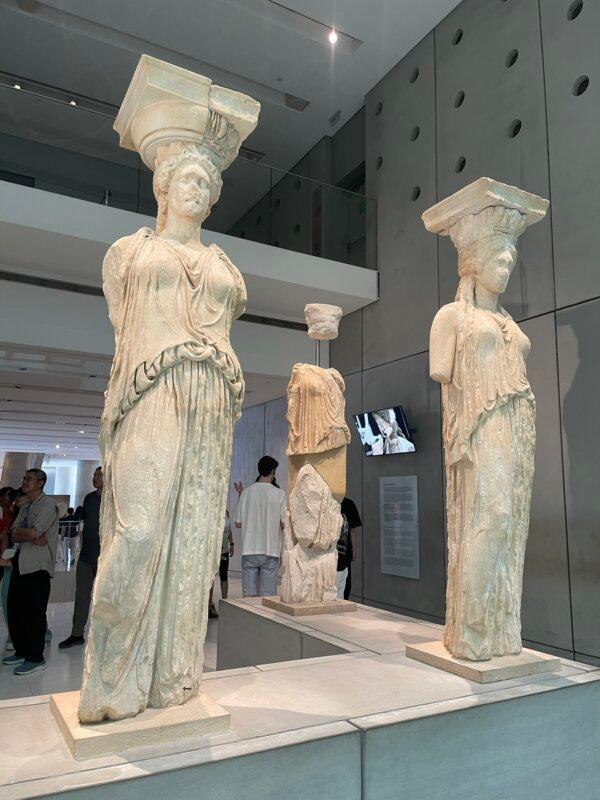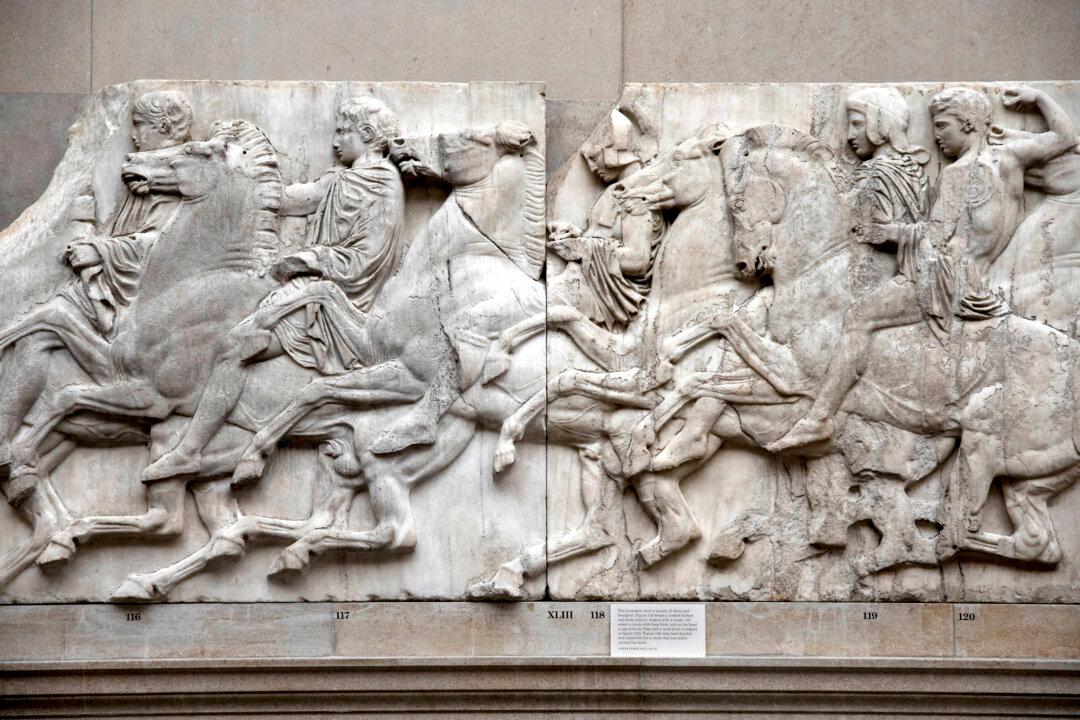Turkey has backed Greece’s claim over the Elgin Marbles, disputing the UK’s argument that the sculptures were legally acquired during the time of the Ottoman Empire.
Speaking at a Unesco intergovernmental committee summit, Turkish representative Zeynep Boz told the delegates she is “not aware of any document” that legitimises that purchase of the marbles by British “colonists” at that time.
Greece has long demanded the return of the historic works, which were removed by Lord Elgin from occupied Athens in the early 19th century when he was the British ambassador to the Ottoman Empire.
The UK has maintained that Lord Elgin had legally purchased the sculptures, based on a historic document written in Italian, although such a record is missing from surviving documents from the Ottoman Empire.
Turkey’s intervention in the dispute was made on May 29, after Greek representatives made their case during a three-day summit of Unesco’s Intergovernmental Committee for Promoting the Return of Cultural Property to its Countries of Origin or its Restitution in case of Illicit Appropriation.
A Greek representative told the delegates the return of the Parthenon sculptures would “restore the integrity of a world heritage monument, the symbol of the Western civilisation.”
British representative Charlotte Joy told delegates the sculptures “were lawfully acquired under the laws pertaining at the time, and has been legally owned by the trustees of the British Museum, which is independent of government since their acquisition more than 200 years ago.”
She also said the UK government doesn’t have a role in the decision, but the British Museum is prohibited from permanently removing items from its collection under current law.
Supporting Greece’s claim, Ms. Boz said: “We are not aware of any document that legitimises that purchase done by colonists, UK, at that time. So I don’t think that there is room to discuss its legality, even ... under the law of the time.”
Ms. Joy responded by saying between 1801 and 1805 Lord Elgin and his agents “were acting under a firman—a permit or licence—issued by the Ottoman authorities, the legal government of the day, and an Italian translation of this permit survives.
“A further permit was issued in 1810 after the initial removals, allowing the final consignment of the sculpture to be shipped,” she added.
However, a Greek representative disputed the credibility of the evidence, calling the Italian translation a “letter” instead of a firman, and said the letter “was given 14 years after the looting” and was probably made by Lord Elgin’s Italian associate.
In 1816, Lord Elgin sold the marbles to Parliament.
Part of friezes that adorned the 2,500-year-old Parthenon temple on the Acropolis, the Elgin Marbles have been displayed at the British Museum in London for more than 200 years.
Most of the remaining sculptures are in a purpose-built museum in Athens.

Under the 1963 British Museum Act, trustees of the museum are prohibited from disposing items in its collection except in limited circumstances.
The British Museum has been working on an exchange deal that would make it possible for the Elgin Marbles to be displayed in Greece, but the museum’s chairman, former Chancellor George Osborne, has said the law means Greece would have to return the sculptures following any exchange.
In November 2023, Prime Minister Rishi Sunak cancelled a planned meeting with his Greek counterpart Kyriakos Mitsotakis after the latter pushed for the return of the Elgin Marbles.
Defending his decision during Prime Minister’s Questions at the time, Mr. Sunak told Parliament he was “always happy to discuss important topics of substance,” adding that it was inappropriate for Mr. Mitsotakis to “grandstand and relitigate issues of the past.”
Earlier in the year, Mr. Sunak said the government had no plans to change the law to allow the return of the marbles during a visit to the United States.
Ahead of Mr. Mitsotakis’s planned visit last year, Labour leader Sir Keir Starmer was reportedly “open” to returning the sculptures, but the party has not indicated it intends to change the law.







